21 Surprising Things Preventing You From Focusing at Work

Some days, it feels impossible to stay on task at work. Your phone keeps buzzing, your mind keeps wandering, or you’re just having trouble getting motivated. We get it—staying focused at work is hard. But here’s the good news: It’s totally possible to get your productivity back on track. To help you eliminate distractions and learn how to focus at work, we’ve rounded up the surprising things that might be derailing your attention, according to HR professionals, scientific researchers, and other productivity experts.
1
Your late bedtime

Sure, you wouldn’t expect to feel bright-eyed and bushy-tailed after a bad night’s sleep, but you might not realize that even your regular bedtime habits still aren’t up to snuff, seeing as more than one-third of adults consistently get too little shut-eye, according to the Centers for Disease Control and Prevention (CDC). “Lack of sleep can definitely have a negative impact on concentration, alertness, and productivity,” says Chris Brantner, certified sleep science coach with SleepZoo. He recommends taking an afternoon power nap to refresh your energy, though you should also start heading to bed earlier if you feel groggy on a regular basis.
2
Your phone

You already know your phone is a distraction, but you might not realize just how much its mere presence is diverting your attention. A 2017 study in the Journal of the Association for Consumer Research found that simply being around a smartphone—even if it’s sitting face-down on your desk on silent—can reduce cognitive performance. Study participants whose phones were in their pocket or bag did better at cognitive tasks than those who kept their mobiles in sight.
Sure, you’ll probably never be convinced to leave your phone at home for the day, but at least keep it out of view while you’re at work.
3
And its color settings
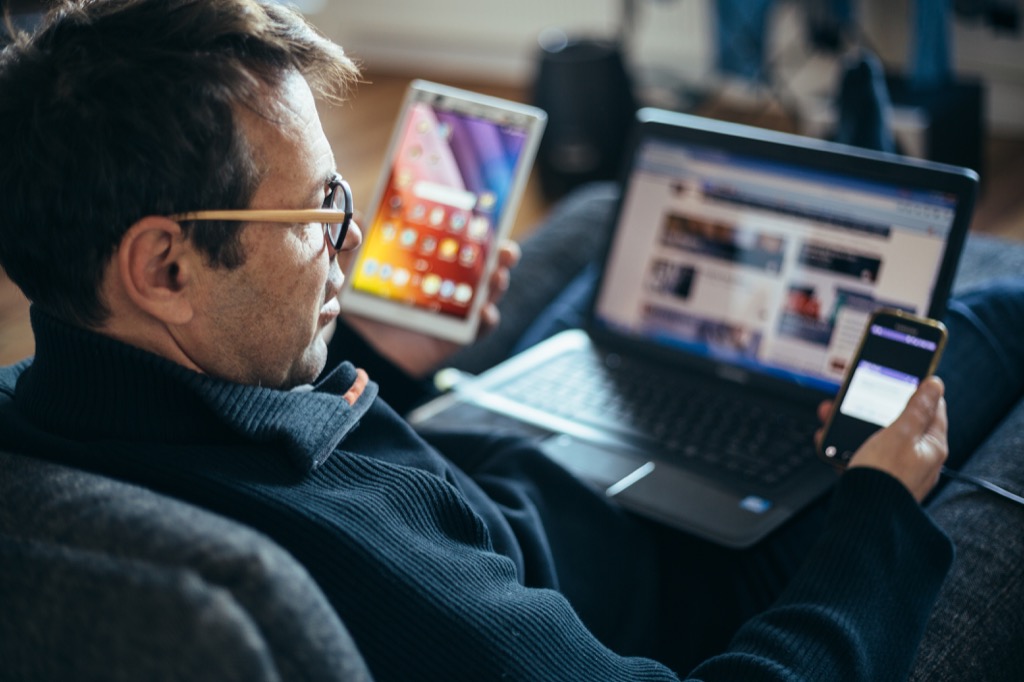
With their bright icons and flashy photos, apps like Instagram and Facebook are designed to pull you in—and keep you coming back for more. But you know scrolling through Twitter is no way to stay focused at work. Want a simple way to fight back without deleting the apps completely? “Turn on grayscale mode on your phone,” says Chris Bailey, author of The Productivity Project. “That way, it becomes significantly more boring and less novel. It’s like Instagram is an old black and white book.” And more boring means less temptation to scroll!
4
Your daily news check

Staying on top of the news is important, but when we read updates online, we tend to just skim the articles and get distracted by pop-ups and “Read Next” links, says Bailey. He recommends subscribing to a paper version instead. “You dive into articles more deeply and you spend less time on stimulating distractions that are programmed to take your attention,” he says.
5
Your attempts to multitask

You’ve got a million things on your plate—why not get them all done at once, right? Well, it turns out doing so kills your focus. One 2016 Stanford University study found that people who multitask often have worse working memory and are more likely to be derailed by tasks that aren’t important to their current goals. So instead of sending off an email while you’re in the middle of writing a PowerPoint slide, make a note to yourself to send the message when you’re done.
6
Your office’s setup

If you’re side-to-side with another coworker, there’s a good chance that background noise is making you lose focus. “The new open space concept that many companies adopted has proven to be distracting,” says HR professional Paula Goldman. You might not have much control over where you sit, but you can take steps to help it work for you. Put on headphones if you have chatty coworkers, or seek out a private space if a colleague’s phone call is distracting you.
7
Your messy desk
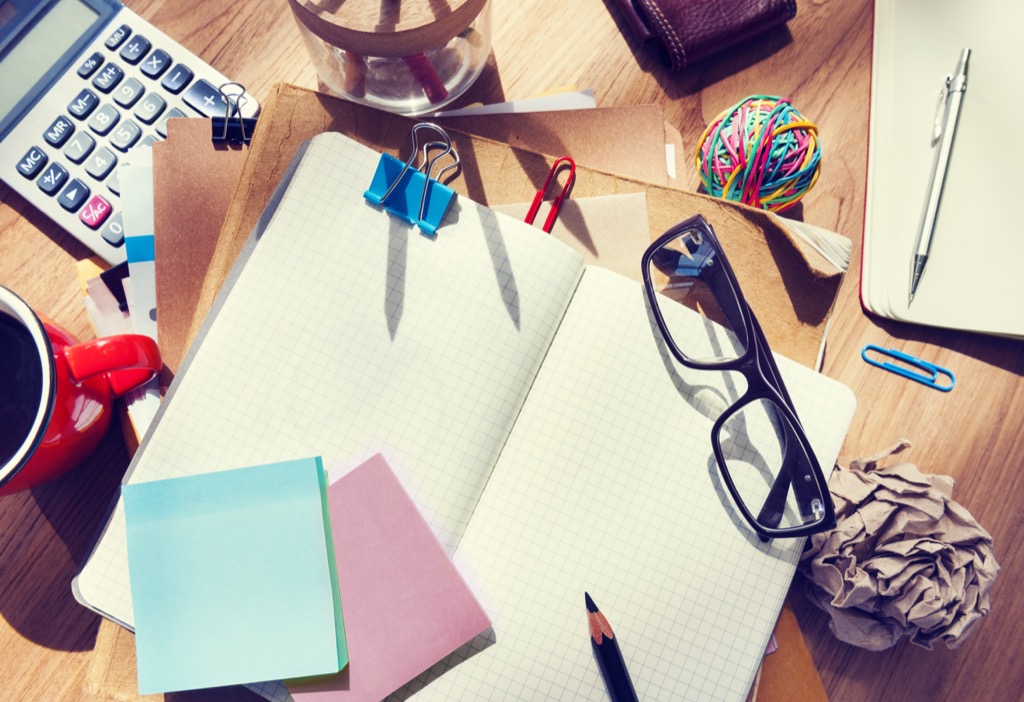
Maybe you think you do your best work in a bit of chaos. But more than likely, a messy desk is just taking your focus away from your job. “The untidier your desk, the more tempting it is to procrastinate by tidying it,” says Samuel Johns, career counselor and human resources manager at ResumeGenius. He suggests limiting your desktop to items you need to use constantly, like pens, a notepad, your mug, and a clock. Anything else should be filed away or tucked into a drawer.
8
The busy work you assign yourself
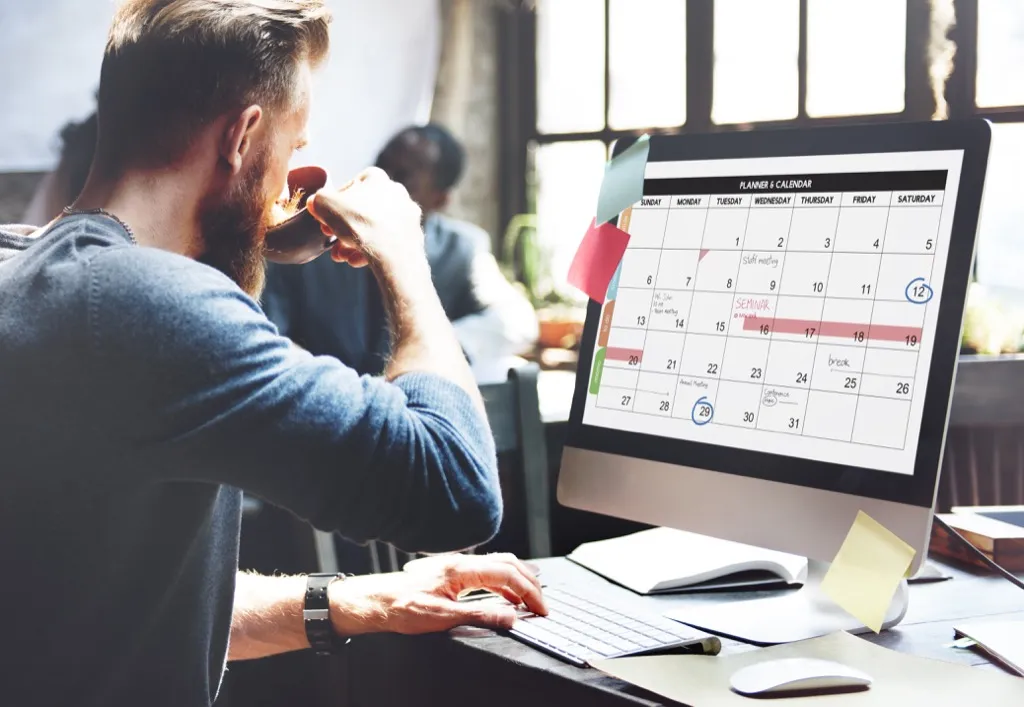
“One major office distraction is ‘make-work,’ or work that you create to avoid other work that’s usually more important,” says Johns. “This could include checking for new emails, creating to-do lists of your work instead of actually doing it, or reorganizing your filing system.” He recommends making one solid to-do list—filled only with your most important tasks—at the beginning of the day, and trying not to stray from the goals you made.
9
You have no idea where to start
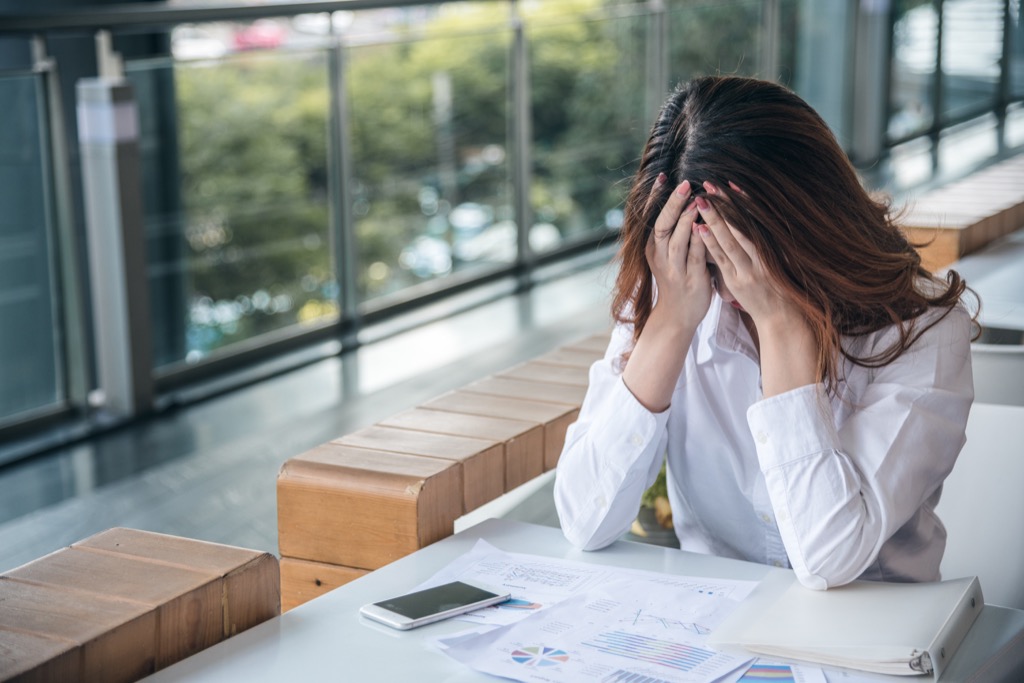
An unstructured task can make you feel paralyzed because you have no idea where to begin. If you’ve been avoiding a project because it’s too overwhelming, try making a step-by-step list of what needs to get done—needs being the key word here—then start attacking your new to-do list.
10
Your tasks are unrewarding
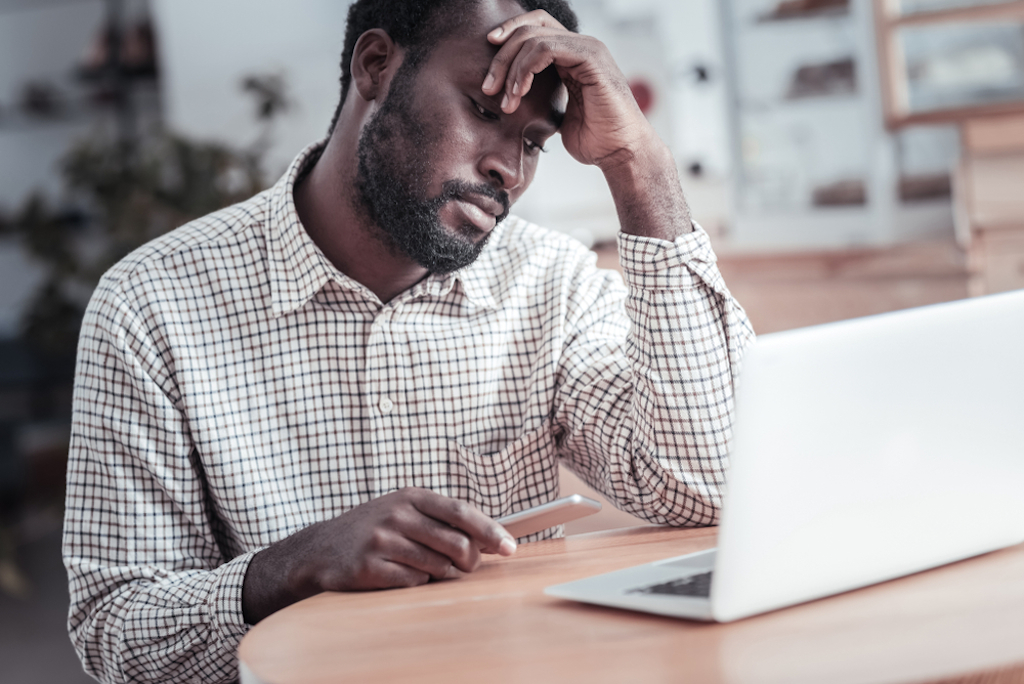
According to Bailey, we’re most likely to procrastinate if a task falls into one of five categories: It’s boring, frustrating, difficult, unstructured, or unrewarding. “The more of these attributes a task has, the more likely we are to put it off,” he says. If an assignment is mind-numbingly dull, escape to a café and treat yourself to a coffee while you buckle down, he suggests.
11
You’re checking things off your personal to-do list
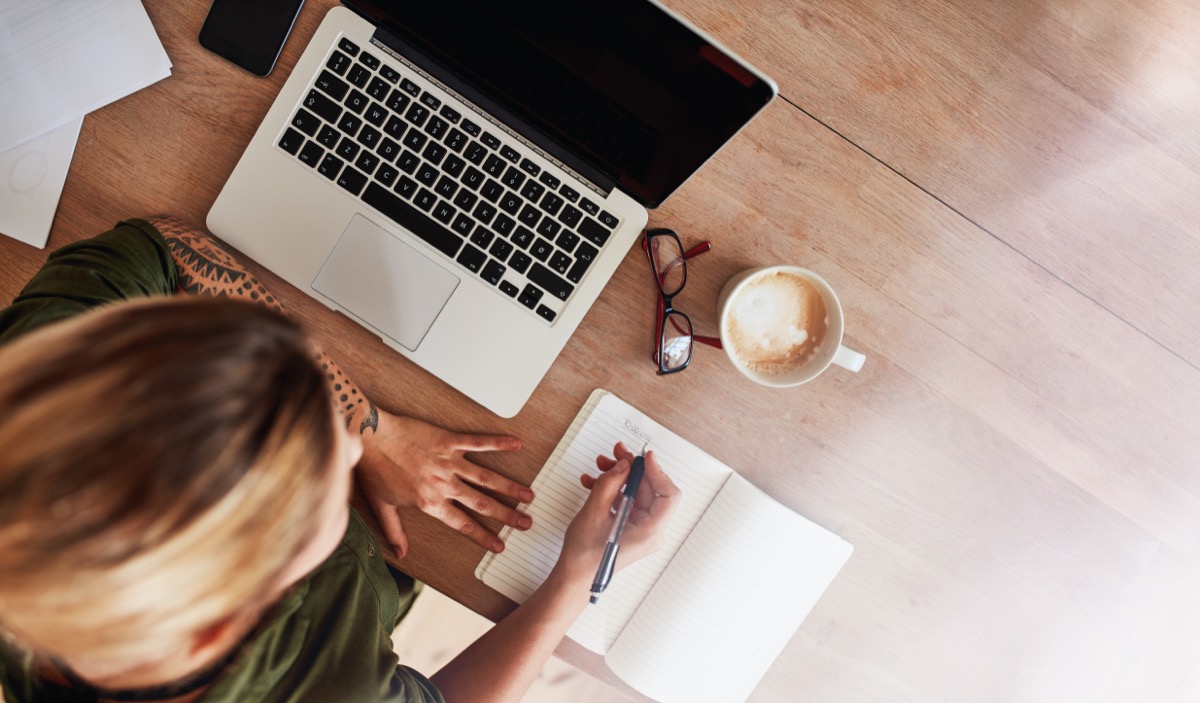
“For some employees, the thought, ‘Oh, it’ll just take two minutes to order some more dog food’ or such-and-such is a frequent occurrence,” says Johns. “It’s really up to employees to decide whether this is an appropriate way to spend their time. As long as they are not procrastinating or behind in their work and their boss doesn’t object, it might be OK.” But if you spend twice as long as you meant to waiting on hold with customer service, it’s probably a sign you should save those tasks for after hours.
12
Your high expectations of yourself

When you have a tough three-hour assignment ahead of you, it’s no wonder you end up busying yourself with menial tasks instead. Instead of telling yourself you’re going to concentrate for the full three hours, promise yourself you’ll get just a 15-minute chunk out of the way, suggests Bailey. You’ll build more momentum than you’d think. “That resistance is always stacked at the beginning of the task,” he says. “It might take three months to get the courage to start, but after three minutes, we could go for hours.”
13
Your notification settings
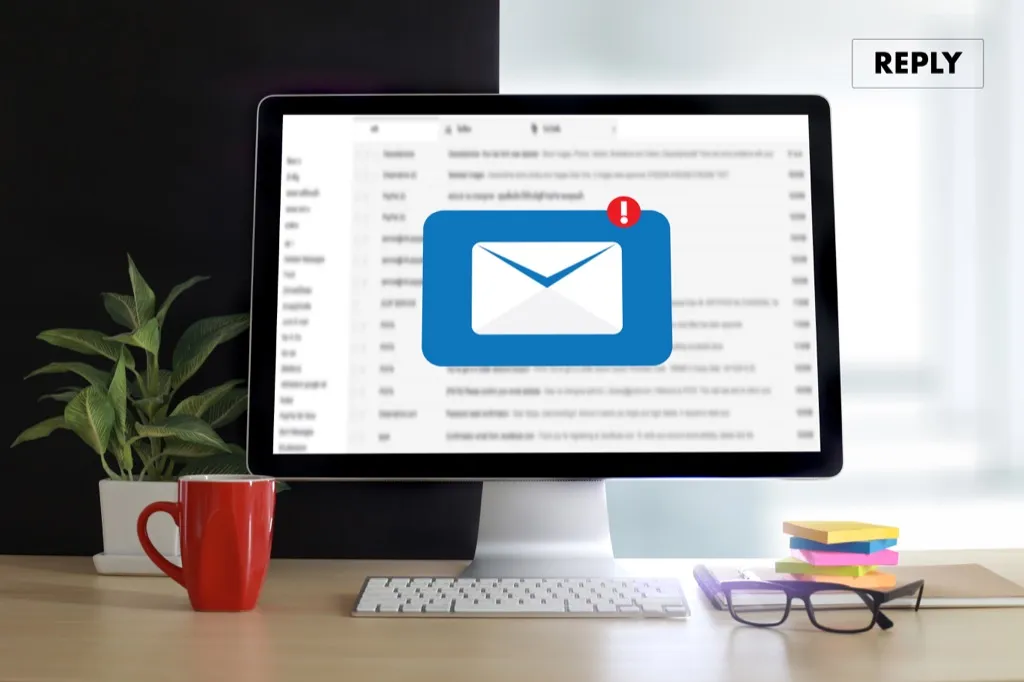
Turn notifications off on non-work apps if you can during the workday. “The things that derail our attention are usually the most novel things we surround ourselves with,” says Bailey. “It’s our phones, the news, and email that comes in.” Checking your email every time you see a new message is a surefire way to lose focus at the office.
14
Your jam-packed schedule of back-to-back meetings

It’s easy to get off track during meetings—everyone starts talking about their kids’ birthday parties and where to go for the next office happy hour. “We put time limits on our social events,” says Jeff Rizzo, CEO of RizKnows and The Slumber Yard. “If we have a meeting, we make sure it ends promptly, and employees are off to their desks.” When you’re leading a meeting, try to do the same, and bring the conversation back on topic if your team members are straying from the point.
15
Your chatty co-workers

Talking to coworkers is one of the biggest distractions in the office, says business coach Stacy Caprio. “The conversation may be about work, or something non-work related, but no matter what the subject, it breaks the employee’s concentration and takes a very large chunk out of their total day’s work,” she says. Unless you need to have an in-depth discussion, you’re probably better off sending a quick email to a colleague when you have a question or need to share some information.
16
Your sad desk lunch
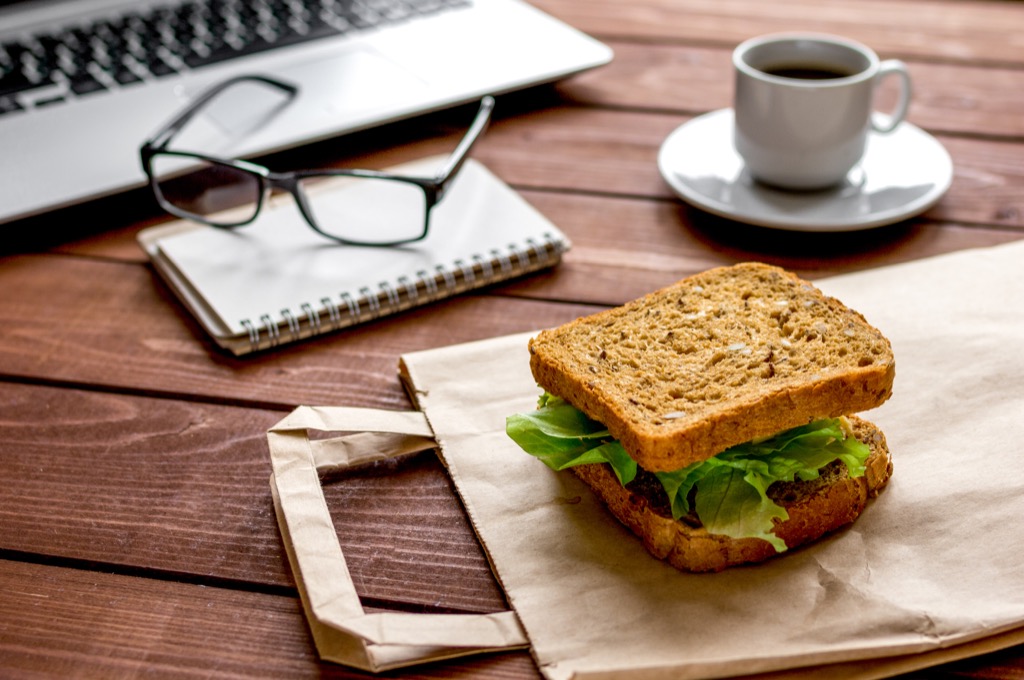
Gobbling down your lunch in front of your computer might seem like a time-saving move for an ultra-focused employee, but it actually has the opposite effect. A 2013 study out of the University of Berkeley found that taking an actual lunch break helps you refresh your energy and boosts your productivity later in the afternoon. If you refuse to leave your desk, you’ll likely end up in a hazy slump an hour or two after eating.
17
Your empty water bottle

A 2018 study published in Medicine & Science in Sports & Exercise found that even mild dehydration can impair cognitive performance, especially when it comes to attention-heavy tasks. “Most people wait until they are thirsty to drink water, but typically that means you’re already experiencing mild dehydration,” says Wayne Anthony, a water expert at Water Filter Data. He recommends drinking 0.5 to 1 ounce of water per pound of body weight every day.
18
Your stress
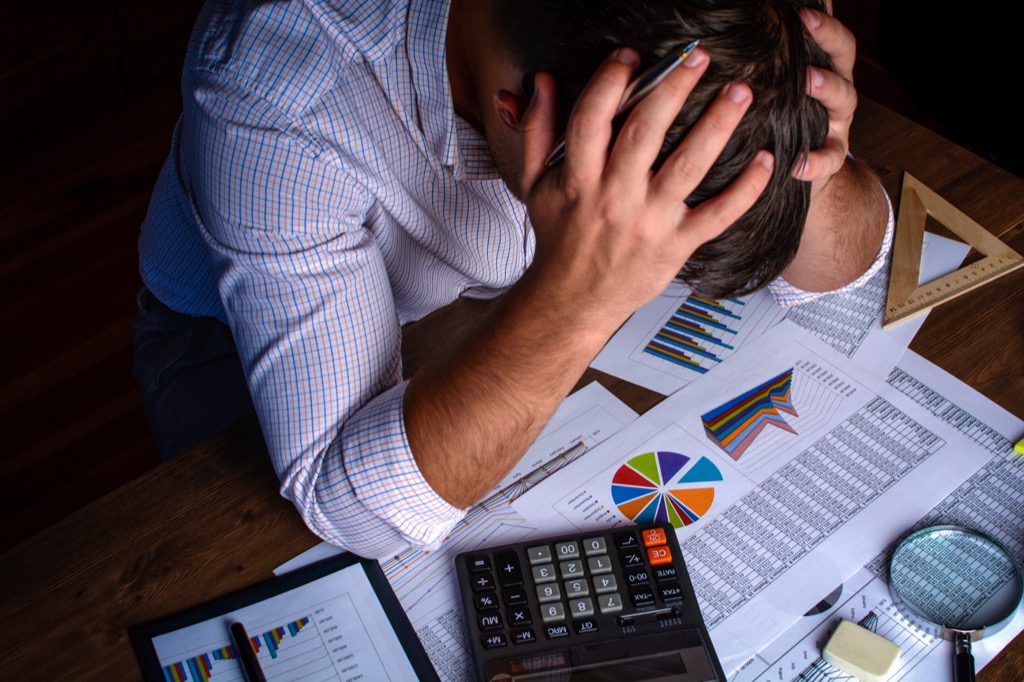
This one goes out to those of you who “work best under pressure.” It turns out, feeling overwhelmed probably isn’t going to help you focus. A a 2010 study published in the International Journal of Productivity and Performance Management found that stressed workers are less productive, especially if work is carrying over into their personal lives. Even if you feel like you’re in over your head, do as much as you can to leave work at the office, and spend your evenings unwinding.
19
Your love life
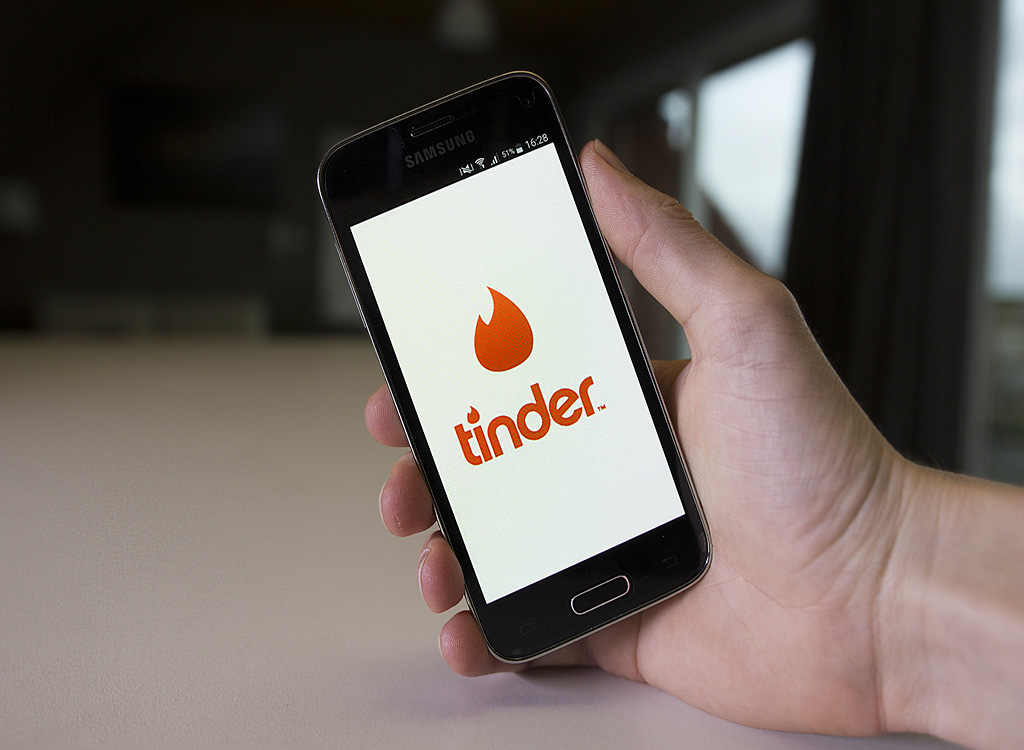
There’s nothing more exciting than a new romance—and it’s certainly more fun than work. Trish McDermott, a Meetopolis dating coach who helped launch Match.com in 1995, says that the temptation to use dating apps at work has only increased over time. “It gets worse if you’ve been meeting your matches in person and now have a flirty banter going on through texts,” she says.
To avoid this distraction, set a few ground rules for yourself and turn those dating app notifications off. That way, you won’t be focusing on what to say to a new match while you’re trying to write that memo you’ve been working on.
20
Your lack of proper nutrition

A lack of nutrients could also be to blame for your difficulty focusing at work. “Low iron levels, vitamin D deficiency, and inadequate B12 can all have profound effects on memory and attention,” says Arielle Levitan, MD, co-founder of Vous Vitamin and co-author of The Vitamin Solution. Take a look at your diet if you’ve been feeling sluggish—try adding more nutrient-rich foods to your eating plan, or pop a multivitamin that has the nutrients you need.
21
Your depression

If you’ve been ignoring your mental health for the sake of your career, it’s time to rethink your strategy. An Australian study published in the International Journal of Work, Health & Organisation in 2013 found that job strain, along with bullying, make symptoms of depression worse, leading to a drop in productivity. If you think you might have depression, it’s important to seek help; your doctor can recommend therapy or medication that can get you back on track.